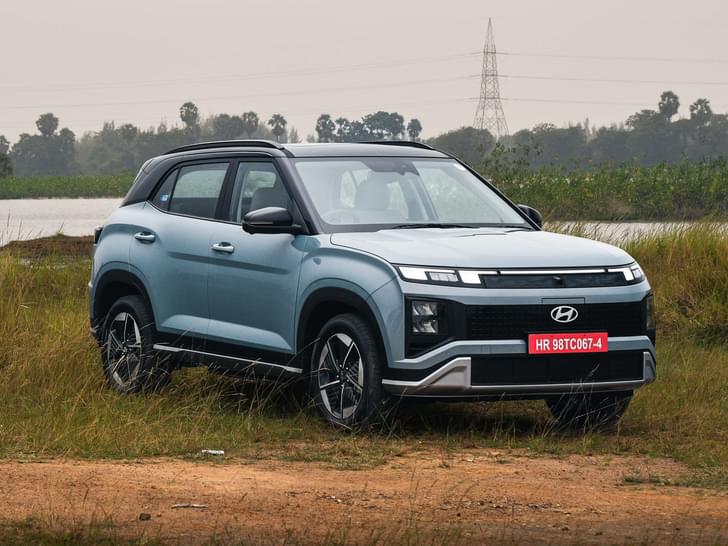Hyundai has unveiled the flagship model for its Ioniq range of EVs. The Hyundai Ioniq 9 is a three-row SUV that will go on sale in Korea and the United States in the first half of next year before being introduced in European and other markets. The e-SUV will also be showcased at the LA Auto Show, scheduled to take place from November 22 to December 1.
- Hyundai Ioniq 9 packs a 110.3kWh battery with an estimated 620km range
- The Long-Range trim gets RWD and AWD, and the Performance trim is AWD only
- Ioniq 9 has a 3,130mm wheelbase and up to 2,050mm legroom for rows two and three
Hyundai Ioniq 9 battery, range, motors
Powering Hyundai’s new range-topping EV is a 110.3kWh (gross) battery pack that is said to have a projected WLTP range of up to 620km on a single charge, but this figure is for the Long-Range RWD variant specced with the smaller 19-inch wheels. Based on Hyundai’s E-GMP architecture – like the Ioniq 5 and the Kia EV9, both of which are on sale in India – the Ioniq 9 is capable of charging from 10 percent to 80 percent in 24 minutes with a 350kW charger. It has 400V and 800V charging capabilities and a vehicle-to-load (V2L) feature that allows one to use the SUV to charge other electrical items.
The Ioniq 9 comes in two trims, Long-Range and Performance, of which the former gets RWD and AWD options, and the latter has AWD as standard. The LR RWD variant packs a 218hp, 350Nm rear axle-mounted motor, taking 9.4 seconds to sprint to 100kph and 6.8 seconds to do the 80-120kph run. The LR AWD adds a 95hp, 255Nm front motor, helping it hit 100kph in 6.7 seconds and sprint from 80kph to 120 in 4.8 seconds. The top-spec Performance trim gets the 218hp motor on both axles. It has a claimed 0-100kph time of 5.2 seconds and an 80-120kph time of 3.4 seconds. The top speed for the range-topper is 200kph.

The e-SUV also features dynamic torque vectoring, lateral wind stability control, and a rough road package called Terrain Traction Control. The latter has an Auto Terrain Mode that is said to use artificial intelligence to gauge the road surface and compensate accordingly. The Ioniq 9 is also rated to tow up to 2,500kg and has a trailer mode, which maintains a fixed 50:50 front-to-rear torque distribution.
Hyundai Ioniq 9 interior, features, safety kit
UUnderlining the Ioniq 9’s luxury status, Hyundai offers it in six-seat and seven-seat configurations. The brand claims up to 1,899mm of headroom and 2,050mm of legroom in the second and third rows. The first two rows get a massage function, while the second one features swivelling seats, which allow passengers to face the third row, albeit only when the Ioniq 9 is stationary. An adjustable console, which Hyundai calls Universal Island 2.0, is standard, and it can be moved up to 190mm and accessed from the second row, thanks to bidirectional adjustable armrests. The console is said to provide 5.6 litres and 12.6 litres of storage space in the upper and lower trays, respectively.

Speaking of space, there is 620 litres worth of luggage room in the boot, which increases to 1,323 litres with the third row folded. The RWD models get an 88-litre frunk, while the AWD models have 52 litres.
Besides the panoramic sunroof, features include a 12-inch infotainment touchscreen and 12-inch digital instrument cluster – together called the ‘panoramic curved display’, ambient lighting, roof-mounted air vents, multi-zone climate control, 100W USB-C ports in all three rows, and an 8-speaker sound system. A 14-speaker Bose system is an optional extra and can play synthesised driving sounds.

The standard safety kit includes 10 airbags, the usual bevy of ADAS (advanced driver assistance system) features, and seat belt pre-tensioners and load limiters for third-row passengers.
Hyundai Ioniq 9 exterior, design
The Ioniq 9 is definitely a large SUV – 5,060mm long, 1,980mm wide and 1,790mm high, with a 3,130mm wheelbase. For context, the length, height and wheelbase of Kia’s flagship EV, the EV9, are shorter by 45mm, 10mm and 30mm than the Ioniq 9’s. Hyundai claims a drag coefficient of just 0.259 Cd, making the Ioniq 9 marginally more slippery than the Mercedes EQS SUV, rated at 0.26 Cd.

However, that figure is for the version with digital side mirrors that replace the standard outside rearview mirrors. A 7-inch OLED screen is used for the display, and it comes with functions such as zoom-out, guidelines and more.
Despite the size, the Ioniq 9 has a swoopy design, with a rounded front end and an upright tailgate. The LED headlights feature what Hyundai calls Parametric Pixels, which are also seen in the Ioniq 5, though in a slimmer avatar. The Ioniq 9 also gets full combination tail-lights and 19-inch wheels as standard. The 20-inch and 21-inch wheels are optional extras. The EV 9 is available in 16 exterior colours and has seven options for the interior finish.

































